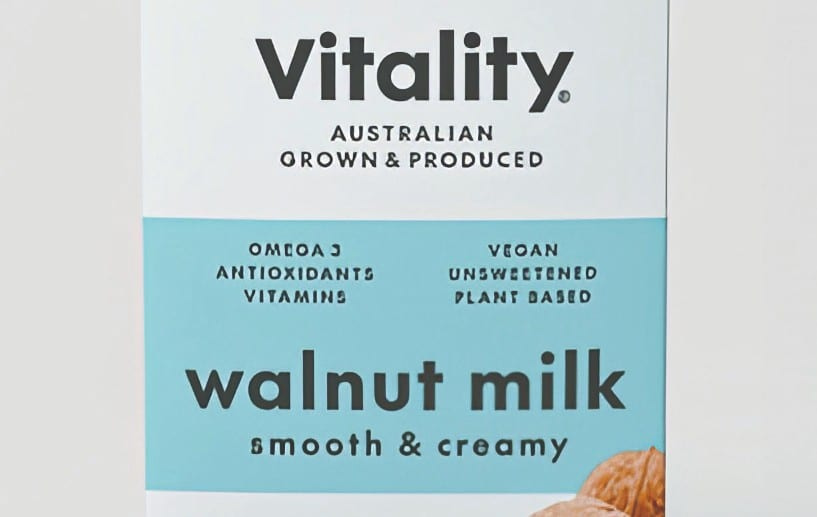[[{“value”:”
Tetra Pak goes above and beyond for its customers, providing support and guidance from concept to commercialisation.
A standard processing and packaging provider has a straightforward task in the beverage market: place the drink in packaging before it hits market shelves.
However, Tetra Pak is not a standard processing and packaging provider, according to its Oceania Marketing Associate Lily Jones. The food processing and packaging solutions company, which has offices across Australia and New Zealand, prides itself on helping customers throughout the product development process.
“We want to be there from start to finish: from ideation to developing a product that reaches the consumer,” she says. “It’s important for us to have a strong partnership with our customers.”
This innovation process begins with market research to locate areas for potential growth, and staying on top of trends is a crucial component. Sustainability and plant-based ingredients are two themes Lily identifies as increasingly importantto consumers.
“Our impact on the environment is becoming more tangible as we start to see the effects in real time” she says. “The market is becoming increasingly focused on using ingredients that not only taste good but also have health benefits and are sourced sustainably.
“There is convergence with the health interests of customers and their concern for the planet. That’s why our cartons, which are made mostly from renewable sources, fit so well in this category. Our sustainability commitment stretches to everything we do.”
The alternative-milk market, which has seen huge innovation in recent years, is of particular interest to Tetra Pak. Almond, soy, and oat milks have all cemented their place in the industry, but Lily believes new alternatives such as sunflower seedand walnut are beginning to make waves. One such product about to enter this space is Vitality, a new walnut milk launching in April.
In 2023, Tetra Pak partnered with an international research agency to analyse market trends in this area, which Lily says provided valuable insights for both the company and its customers.
“We looked at different macro trends, such as the ageing population and international relations, and assessed what the consequences might be for the plant- based milk market,” she says.
On the back of this research, Tetra Pak has started to explore RTD options for both dairy and dairy-alternative companies interested in entering the market. The company is currently looking at new drink preparation concepts including precision fermentation, a process that replicates natural dairy proteins using fermentation in a controlled lab setting in order to increase the protein level in dairy milk or to add protein to a dairy alternative.
“Being clear on the amount of protein in milk is becoming increasingly important, so we’re looking for a way to bring that bonus nutritional content to our customers,” says Lily.
A global trend of concern highlighted by the research was the inflated cost of alternative milks for café owners, which led Tetra Pak to rethink its approach to packaging RTD products.
“The price point has become a barrier for some consumers looking to make the switch to dairy alternatives,” Lily says.
“We’re starting to see a shift in the market towards a smaller portion pack for alternative milks to give cafés and consumers an opportunity to try different products.”
The company also surveyed baristas from Australia and New Zealand to better understand how they use plant-based milks.
Lily says Tetra Pak’s extensive research gives its customers added value, and is what separates the company from competitors.
“We can help our customers decide which ingredients they will need and the best formulation for what they are trying to achieve,” she says.
“Usually, a customer will come to us with a very specific challenge they want to address. For example, it could be they have an oat milk that is under performing in a certain market and want to know why. From here, we’ll research the target market as well as the oat milk itself to get to the bottom of the issue.
Lily believes alternative milk producers looking to establish themselves in the market would benefit greatly from a Tetra Pak partnership. She says Tetra Pak’s customers can trial new formulations and beverages at its Product Development Centre before moving to commercial scale production.
“Our research tells us that 30 to 40 per cent of people drink plant-based milks, while dairy consumption is still prevalent among 90 to 95 per cent of the population. Therefore, a lot of plant-based companies are looking for ways to incentivise people to make the switch,” she says.
“We encourage companies of all sizes to reach out to us with a challenge so we can work together to solve it.”
For more information, visit tetrapak.com/en-anz
This article appears in the April 2024 edition of BeanScene. Subscribe HERE.
“}]]


